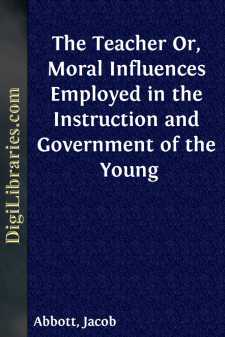Categories
- Antiques & Collectibles 13
- Architecture 36
- Art 48
- Bibles 22
- Biography & Autobiography 816
- Body, Mind & Spirit 145
- Business & Economics 28
- Children's Books 17
- Children's Fiction 14
- Computers 4
- Cooking 94
- Crafts & Hobbies 4
- Drama 346
- Education 58
- Family & Relationships 59
- Fiction 11834
- Foreign Language Study 3
- Games 19
- Gardening 17
- Health & Fitness 34
- History 1378
- House & Home 1
- Humor 147
- Juvenile Fiction 1873
- Juvenile Nonfiction 202
- Language Arts & Disciplines 89
- Law 16
- Literary Collections 686
- Literary Criticism 179
- Mathematics 13
- Medical 41
- Music 40
- Nature 179
- Non-Classifiable 1768
- Performing Arts 7
- Periodicals 1453
- Philosophy 66
- Photography 2
- Poetry 897
- Political Science 203
- Psychology 45
- Reference 154
- Religion 516
- Science 126
- Self-Help 85
- Social Science 82
- Sports & Recreation 34
- Study Aids 3
- Technology & Engineering 59
- Transportation 23
- Travel 463
- True Crime 29
Our website is made possible by displaying online advertisements to our visitors.
Please consider supporting us by disabling your ad blocker.
The Education of the Child
by: Ellen Key
Description:
Excerpt
THE EDUCATION OF THE CHILD
Goethe showed long ago in his Werther a clear understanding of the significance of individualistic and psychological training, an appreciation which will mark the century of the child. In this work he shows how the future power of will lies hidden in the characteristics of the child, and how along with every fault of the child an uncorrupted germ capable of producing good is enclosed. "Always," he says, "I repeat the golden words of the teacher of mankind, 'if ye do not become as one of these,' and now, good friend, those who are our equals, whom we should look upon as our models, we treat as subjects; they should have no will of their own; do we have none? Where is our prerogative? Does it consist in the fact that we are older and more experienced? Good God of Heaven! Thou seest old and young children, nothing else. And in whom Thou hast more joy, Thy Son announced ages ago. But people believe in Him and do not hear Him—that, too, is an old trouble, and they model their children after themselves." The same criticism might be applied to our present educators, who constantly have on their tongues such words as evolution, individuality, and natural tendencies, but do not heed the new commandments in which they say they believe. They continue to educate as if they believed still in the natural depravity of man, in original sin, which may be bridled, tamed, suppressed, but not changed. The new belief is really equivalent to Goethe's thoughts given above, i.e., that almost every fault is but a hard shell enclosing the germ of virtue. Even men of modern times still follow in education the old rule of medicine, that evil must be driven out by evil, instead of the new method, the system of allowing nature quietly and slowly to help itself, taking care only that the surrounding conditions help the work of nature. This is education.
Neither harsh nor tender parents suspect the truth expressed by Carlyle when he said that the marks of a noble and original temperament are wild, strong emotions, that must be controlled by a discipline as hard as steel. People either strive to root out passions altogether, or they abstain from teaching the child to get them under control.
To suppress the real personality of the child, and to supplant it with another personality continues to be a pedagogical crime common to those who announce loudly that education should only develop the real individual nature of the child.
They are still not convinced that egoism on the part of the child is justified. Just as little are they convinced of the possibility that evil can be changed into good.
Education must be based on the certainty that faults cannot be atoned for, or blotted out, but must always have their consequences. At the same time, there is the other certainty that through progressive evolution, by slow adaptation to the conditions of environment they may be transformed. Only when this stage is reached will education begin to be a science and art. We will then give up all belief in the miraculous effects of sudden interference; we shall act in the psychological sphere in accordance with the principle of the indestructibility of matter....












